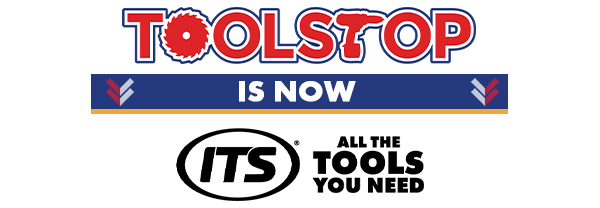Metal Shears
Metal shears are essential for cutting and shaping sheet metal, metal pipes, and panels with ease. Perfect for professionals and DIYers, these tools ensure efficiency and precision for construction, fabrication, and repair tasks. Available now for next-day delivery at ITS.co.uk.
Who Uses Metal Shears?
Metal shears are relied upon by professionals in various industries and are equally handy for home improvement projects. Here are some common users and their applications:
- Construction Workers – Use metal shears for cutting roofing panels, siding, and framework components.
- Fabricators – Essential for shaping sheet metal and pipes in custom fabrication projects.
- HVAC Technicians – Ideal for trimming and fitting metal ducts during HVAC installations.
- DIY Enthusiasts – Great for cutting metal materials for home repairs, crafts, and small construction tasks.
Metal Shears Are Great for Jobs Such As:
- Cutting Sheet Metal – Make clean and precise cuts for construction or artistic projects.
- Trimming Metal Pipes – Accurately cut pipes to the desired length for plumbing or framework installations.
- Shaping Metal Panels – Ensure exact fits for roofing, siding, or custom fabrication tasks.
- Creating Metal Designs – Use for crafting and decorative metalwork with intricate shapes and patterns.
- Repairing Metal Fixtures – Perfect for resizing and shaping materials to repair metal fixtures or structures.
How to Choose the Best Metal Shears
Choosing the right metal shears depends on the type of material, your workload, and specific project requirements. Whether you’re a professional fabricator or a DIY enthusiast, these key considerations will help you select the ideal tool for your needs.
1. Type of Metal Shears
Manual Shears: Great for small, precise tasks like trimming thin sheets of metal, offering control and accuracy without the need for power.
Electric Shears: Ideal for cutting through thicker materials or handling larger projects quickly and efficiently.
2. Cutting Capacity
Ensure the shears can handle the thickness of the metal you’ll be working with. Look for specifications like maximum gauge or thickness compatibility to avoid tool strain or damage.
3. Power Source
Corded: Offers continuous power for demanding tasks but requires access to a power source.
Cordless: Provides flexibility and portability, ideal for on-site jobs or areas without electricity. Check battery runtime and charging speed for extended use.
4. Blade Type and Quality
Choose high-quality, durable blades made from hardened steel for cleaner cuts and longer tool life. Replaceable blade options can save costs over time.
5. Ergonomics and Weight
Select a tool with comfortable grips and a balanced design to reduce hand fatigue during prolonged use. Lightweight options are especially helpful for overhead or intricate tasks.
6. Additional Features
Look for features like variable speed control, lock-on switches for extended cuts, and swivel heads for increased flexibility when working with tight corners or angles.
Popular Accessories for Metal Shears
Pairing your metal shears with the right accessories can enhance performance, ensure cleaner cuts, and prolong the lifespan of your tool. Here are three essential accessories to complement your metal shears for optimal results.
1. Replacement Blades
High-quality replacement blades keep your metal shears cutting smoothly and accurately. Regular blade replacement is essential for maintaining sharpness and ensuring precise cuts, especially when working with tough materials.
2. Blade Lubricants
Blade lubricants reduce friction and prevent overheating during extended use. They help maintain blade efficiency and protect against wear, ensuring your metal shears remain reliable over time.
3. Safety Gloves
Durable safety gloves provide essential hand protection when handling sharp edges and cutting materials. They improve grip and reduce the risk of accidents, making your work environment safer and more comfortable.
Frequently Asked Questions
What materials can metal shears cut?
Metal shears are designed to cut a variety of materials including sheet metal, aluminum, steel, and copper. Always check the shear's specifications to ensure compatibility with the material you need to cut.
Are electric metal shears better than manual ones?
Electric metal shears provide faster and more consistent cuts, making them ideal for larger projects. Manual shears, however, are better suited for smaller, more precise tasks or where portability is a priority.
How do I maintain my metal shears?
Regularly clean the blades and remove debris after each use. Apply blade lubricant to prevent rust and ensure smooth operation. Check for blade sharpness and replace or sharpen when necessary to maintain performance.
Can metal shears cut curves or only straight lines?
Some metal shears, such as nibblers or specialty shears, are designed to cut curves and intricate shapes. Standard straight-cut shears are primarily for straight or slightly angled cuts.
What safety precautions should I take when using metal shears?
Always wear safety gloves and goggles to protect your hands and eyes from sharp edges and flying debris. Ensure the workpiece is securely clamped and avoid loose clothing that could get caught in the tool.
Metal Shears
Metal shears are essential for cutting and shaping sheet metal, metal pipes, and panels with ease. Perfect for professionals and DIYers, these tools ensure efficiency and precision for construction, fabrication, and repair tasks. Available now for next-day delivery at ITS.co.uk.
Who Uses Metal Shears?
Metal shears are relied upon by professionals in various industries and are equally handy for home improvement projects. Here are some common users and their applications:
- Construction Workers – Use metal shears for cutting roofing panels, siding, and framework components.
- Fabricators – Essential for shaping sheet metal and pipes in custom fabrication projects.
- HVAC Technicians – Ideal for trimming and fitting metal ducts during HVAC installations.
- DIY Enthusiasts – Great for cutting metal materials for home repairs, crafts, and small construction tasks.
Metal Shears Are Great for Jobs Such As:
- Cutting Sheet Metal – Make clean and precise cuts for construction or artistic projects.
- Trimming Metal Pipes – Accurately cut pipes to the desired length for plumbing or framework installations.
- Shaping Metal Panels – Ensure exact fits for roofing, siding, or custom fabrication tasks.
- Creating Metal Designs – Use for crafting and decorative metalwork with intricate shapes and patterns.
- Repairing Metal Fixtures – Perfect for resizing and shaping materials to repair metal fixtures or structures.
How to Choose the Best Metal Shears
Choosing the right metal shears depends on the type of material, your workload, and specific project requirements. Whether you’re a professional fabricator or a DIY enthusiast, these key considerations will help you select the ideal tool for your needs.
1. Type of Metal Shears
Manual Shears: Great for small, precise tasks like trimming thin sheets of metal, offering control and accuracy without the need for power.
Electric Shears: Ideal for cutting through thicker materials or handling larger projects quickly and efficiently.
2. Cutting Capacity
Ensure the shears can handle the thickness of the metal you’ll be working with. Look for specifications like maximum gauge or thickness compatibility to avoid tool strain or damage.
3. Power Source
Corded: Offers continuous power for demanding tasks but requires access to a power source.
Cordless: Provides flexibility and portability, ideal for on-site jobs or areas without electricity. Check battery runtime and charging speed for extended use.
4. Blade Type and Quality
Choose high-quality, durable blades made from hardened steel for cleaner cuts and longer tool life. Replaceable blade options can save costs over time.
5. Ergonomics and Weight
Select a tool with comfortable grips and a balanced design to reduce hand fatigue during prolonged use. Lightweight options are especially helpful for overhead or intricate tasks.
6. Additional Features
Look for features like variable speed control, lock-on switches for extended cuts, and swivel heads for increased flexibility when working with tight corners or angles.
Popular Accessories for Metal Shears
Pairing your metal shears with the right accessories can enhance performance, ensure cleaner cuts, and prolong the lifespan of your tool. Here are three essential accessories to complement your metal shears for optimal results.
1. Replacement Blades
High-quality replacement blades keep your metal shears cutting smoothly and accurately. Regular blade replacement is essential for maintaining sharpness and ensuring precise cuts, especially when working with tough materials.
2. Blade Lubricants
Blade lubricants reduce friction and prevent overheating during extended use. They help maintain blade efficiency and protect against wear, ensuring your metal shears remain reliable over time.
3. Safety Gloves
Durable safety gloves provide essential hand protection when handling sharp edges and cutting materials. They improve grip and reduce the risk of accidents, making your work environment safer and more comfortable.
Frequently Asked Questions
What materials can metal shears cut?
Metal shears are designed to cut a variety of materials including sheet metal, aluminum, steel, and copper. Always check the shear's specifications to ensure compatibility with the material you need to cut.
Are electric metal shears better than manual ones?
Electric metal shears provide faster and more consistent cuts, making them ideal for larger projects. Manual shears, however, are better suited for smaller, more precise tasks or where portability is a priority.
How do I maintain my metal shears?
Regularly clean the blades and remove debris after each use. Apply blade lubricant to prevent rust and ensure smooth operation. Check for blade sharpness and replace or sharpen when necessary to maintain performance.
Can metal shears cut curves or only straight lines?
Some metal shears, such as nibblers or specialty shears, are designed to cut curves and intricate shapes. Standard straight-cut shears are primarily for straight or slightly angled cuts.
What safety precautions should I take when using metal shears?
Always wear safety gloves and goggles to protect your hands and eyes from sharp edges and flying debris. Ensure the workpiece is securely clamped and avoid loose clothing that could get caught in the tool.



